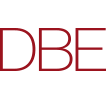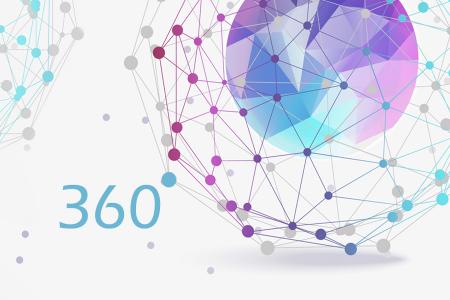Focus Group Workshops
Focus Group Workshop is a a structured qualitative / quantitative data collection method. Evaluation with quantitative tools used for reporting and depth examination. Focus group allows determining the needs and development plan proposal of employees.
Benefits for Companies
In this way it will be possible for the organisations to identify current needs and to conduct more in-depth analysis, to achieve the most appropriate intervention.
Areas of Focus Group Workshops
Areas of focus group is quite large. Some of them are as follows:
- Understanding the of the different levels of managers and employees throughout the organization, (Taking the views of employees in corporate management, corporate culture, corporate image, management style, employee satisfaction,…)
- Learning expectations of the company’s employees, needs / demands for change
- Institutions failing in their business conduct, detection of process
- Receiving opinions from employees about the projects or established systems for functionality and improving the system,
- Evaluation of existing systems by staff,
- Consumer perceptions regarding a product category, understanding the preferences and behavior of them,
- To get impressions about the new product ideas,
- To generate new ideas about old products,
- Develop creative ideas and materials for ads,
- Learn consumer responses to specific market programs,
- To explore creative ideas,
- Identification of concrete actions for change and development needs.
Types of Focus Group Applications
Focus groups may use different variations of standard practice. Some of them are as follows:
- Two-way focus groups: This method listens to another group associated with a target group and learn some things.
- Two moderated groups: There are two in the focus group moderator. One of them, is responsible for the flow of the session the other is responsible for ensuring the discussion of important issues.
- Duelling Moderators: Here, there are two moderators moderator but it’s the opposite pole are located in the discussed topics. Thus, it was examined both directions of a subject.
- Attendee-moderated groups: The moderator asks one of the participants to act as a temporary moderator to activate group dynamics.
- Mini groups: These groups consist of 4-5 participants and a moderator. These groups, which examined the issue requires further drilling and is used in cases where it is not possible with groups of 8-12.
- Tele-session groups: Sessions are conducted via telephone.
- Online focus groups: These focus groups conducted on the internet are also becoming increasingly common.
Pros and Cons of the Focus Group Study Compared with Other Data Collection Methods
Focus groups have many advantages over other methods of data collection:
- Synergy: Compared to the single call, gathering a group of people together would reveal more information and ideas.
- Snowball effect: One comment coming from a participant would trigger other ones' mind.
- Stimulation: Usually after a brief introduction stage, participants would want to specify their ideas and share their feelings.
- Security: Usually, participants have similar feeling about being in the group and feel comfortable to express feeling and ideas.
- Self-being: In focus group studies, participants are not prepared at all. Thus, reactions to any question or debate would be spontaneous when the participant is to be involved.
- The Chance of Finding Something Unexpected: During a focus group study, there are more opportunities for the emergence of unexpected ideas than during a conversation.
- Specialization: Due to the large number of participants, used well-trained interviewers.
- Structure: Structure allows for flexibility.
- Speed: As it is possible to discuss with multiple participants at the same time, data collection and analysis process is faster.
The disadvantages of focus groups on the other hand can be summarized as follows
- Improper Use: Instead of exploratory findings, evaluation of findings may lead to incorrect use of focus groups.
- Getting Wrong Idea: Focus group results can be understood in a wrong way compared to the results obtained from other data collection methods.
- Management: Focus groups are very difficult to manage. The quality of the work depends largely moderator.
- Clutter: Lack of response coding structure complicates the analysis and review processes. This has led to the scattered data in focus groups.
- Representation Problem: Focus group studies does not represent the general population. Therefore, the focus group results should not be used alone to make decisions.
Stages of Focus Group Workshops and Reporting Conclutions
I. Stage
Issues to be adressed will be identified for the Focus Group performed by employees in the company, a publication and reporting templates prepared and shared with the organization’s Human Resources Management.
II. Stage
Will be created by selecting from employees within the enterprise, Focus Group practices are carried out with groups of 8-10. Groups of employees who will represent the desired field for overall and in-depth examination of the institution is determined with Human Resources management.
III. Stage
Focus Group made a detailed analysis of the application and reports are prepared. In the reports, the titles of the topics covered in the focus group held, is located in a detailed summary and action plan proposals. In any of the reporting stages the names are used and in any circumstances not shared with corporate management.
IV. Stage
Coaching and orientation is provided to realise the action plans of the focus group workshop results.
V. Stage
It is provided to take individual counsulting for monitoring the change process and supervision needed orientation. This consultingor supervision is strucutured according to companiy’ s or individuals demands.
VI. Stage
Idendification of improvement areas can be done after quantitative analysis (survey analysis) and applied to the qualitative analysis (focus group analysis) if implemented.
Examples of development ares of company:
- Must be urgently intervene (major and low levels of satisfaction) areas,
- Areas that should be protected at the current level,
- Areas anything need to de done,
- Areas will not contribute to further progress.
Including high performers in a Focus Group workshop, it will be held with employees, expected to achieve the distinction sample data for “ideal” and “current” are:
- Manager profile,
- Working conditions,
- High performer profile (Stars),
- Brand image,
- Ways to improve performance,
- Information on what can be done to improve customer relationships.
Releated Content:
DBE experts, configures Assessment and Development Center Applications used in career development and recruitment processes. particularly for the ...
360 Feedback system measures the competency of the employee within the company and with their job through feedbacks from team mates, subordinates, ...
For an effective sales force, we use scientific tools to form the ideal position profile for a top performer sales person (STAR) and implement it to ...
Assessment and Development Center applications are used in the evaluation process of the candiate in terms of competencies required for the position and the ...






